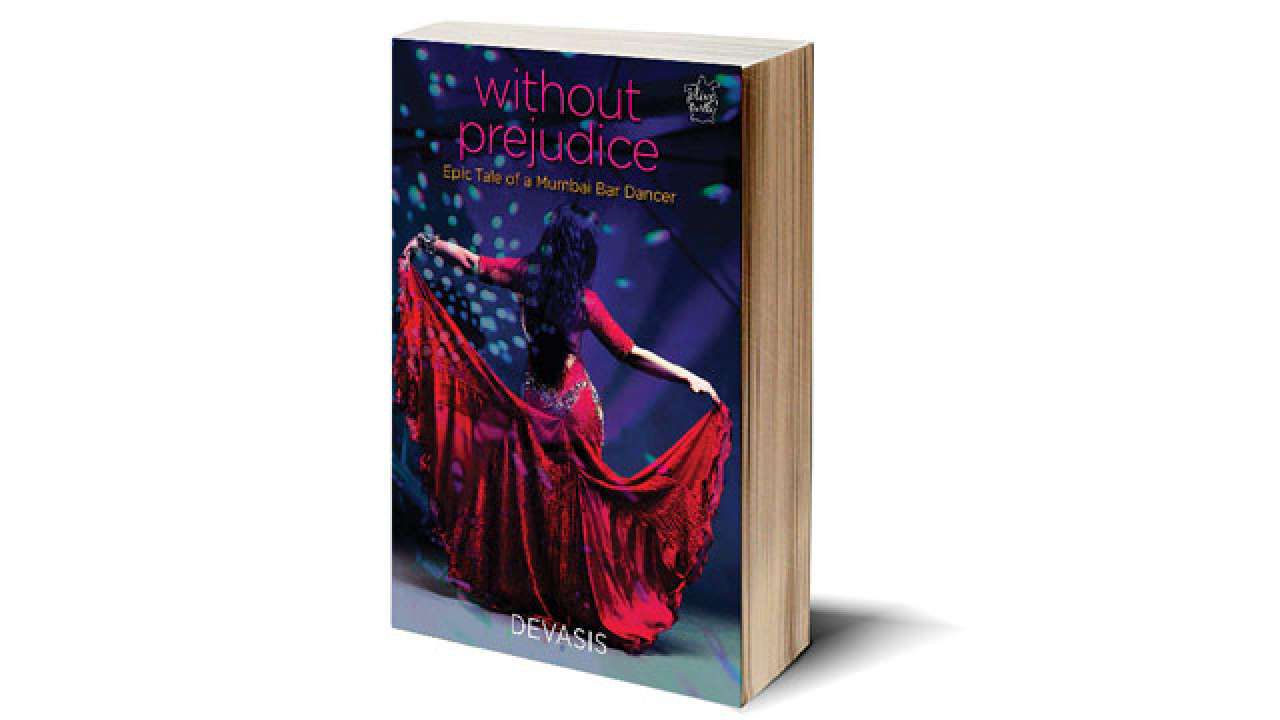
Even a number of books, a dedicated movie (plus references in many) and innumerable news headlines later, the mention of Mumbai's dance bars continues to inspire a variety of reactions – curiosity, pity, anger perhaps, and even disgust rooted in our sense of cultural, moral high-ground. Without Prejudice: Epic Tale of a Mumbai Bar Dancer, the latest book on the subject by debut author Devasis (Chattopadhyay), sets out to make the reader look beyond the 'gloss' and debunk myths that he believes have gotten created because "those who write about dance bars, barely visit them and those who visit them regularly, don't talk about their experience".
Introduced to dance bars by a journalist friend on his first night in the city, the 60-year-old public relations professional has been visiting them for 20 years now. "I was intrigued! To an average person it's an unknown world. We aren't expected to know of or be exposed to these stark realities. I was amazed by the people, especially the girls. I liked being there," recalls Devasis.
But his academic interest in them was triggered eight years ago, after watching Madhur Bhandarkar's Chandni Bar. It made him wonder – "If the dancers aren't held in captivity, why don't they seek an escape? Why don't they save up and leave to lead a different life?" Such questions led him to dig deep into this world shrouded in omertà, get dancers and dance bar owners to open up, trace their communities, visit their villages and collect document after document. "I unearthed so much, I could have submitted a thesis!" says Devasis.
Although he started writing the book in non-fiction form, he later changed course and turned it into fiction novel that explores the making of a dance-bar girl through the life of the protagonist, Munia. Her fate was sealed the day she was born, but Munia was little aware that monies had been invested into her upbringing and would be reaped from her, in multiples, once she hit puberty. As her transition from an innocent village girl to bar-dancer 'Pallavi Singh' was orchestrated by people known to her – in the most subtle fashion and alongside other girls from her community – it was met with little rebellion, though there was much instinctive hesitation.
The depth of Devasis' research is revealed in the way he links dance bars to events prior to India's independence, describes their evolution to the current avatar, and vividly narrates the training process, initiation rites and codes governing the establishments. For instance, did you know that among communities many of these dancers belong to, marriage is a taboo for women?
Facts, statistics and real stories are woven seamlessly into the plot, which follows the lives of Pallavi and other lead characters – professor-turned cab driver Raja Mallik and journalist, Roy. The way they all meet, the crisp narrative, romantic sub-plot, strong imagery and unexpected twists and turns all make the book a page-turner. Complementing them are natural and original dialogues that use the dance-bar lingo in just the right doses, at the right places. Despite all the elements and spins in the tale, you're never left confused.
What makes it further compelling is Pallavi's portrayal as a strong, discerning woman, who is also financially independent. The author allows her to have a sense of the world outside of her own, to aspire to have that life and ask questions like why those like her are maligned for having had more than one sexual partner (often by force), but the urban elite, who do so by will, aren't painted with the same brush.
As a reader you wish Devasis had taken you through Pallavi's journey from reluctance to stardom, but the real let-down comes in towards the end – where she's made to believe only marriage to a well-meaning, wealthy man will allow her to leave her old life behind. Though in the course of the story, Pallavi's beau is sensitised to the layers of the social issue and finds his respect for her growing, strangely she still has to convince him she's worthy of him. And pledges, willingly, a readiness to lose her identity to be his wife – is one's profession, one's only identity? While Pallavi gets a romantic happy ending, the reader may feel a little disoriented at being cheated out of an orgasm just before the end. That said, this is a book where the destination is really the entire journey.